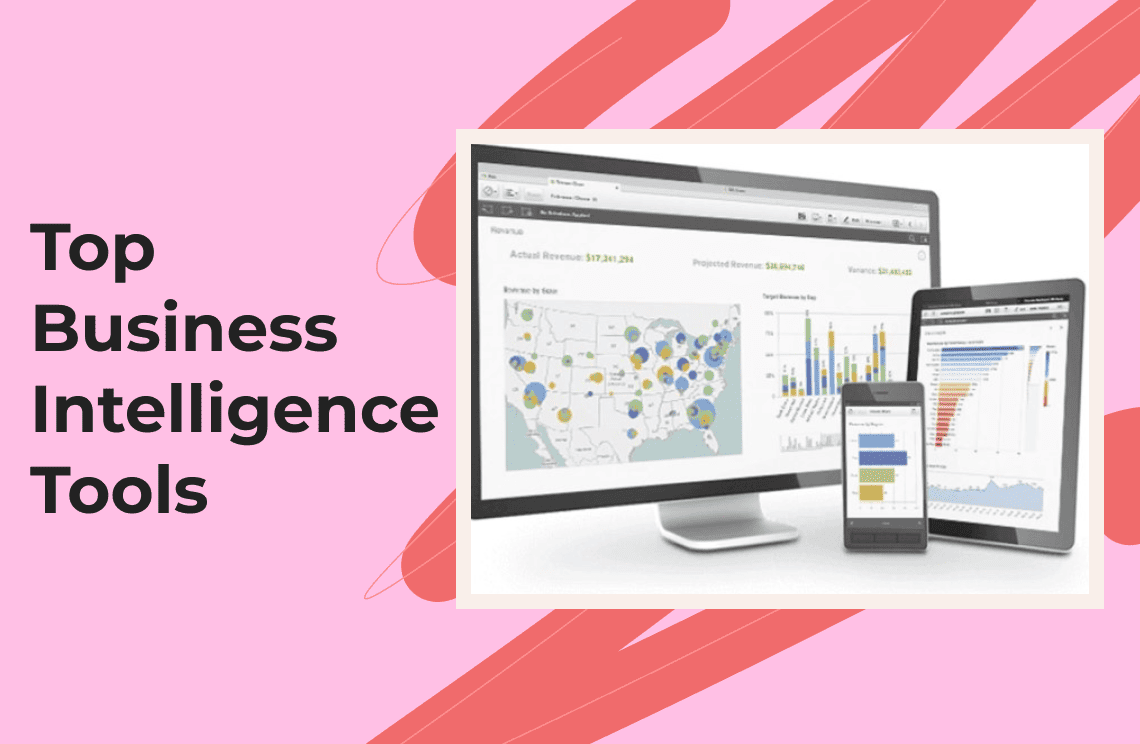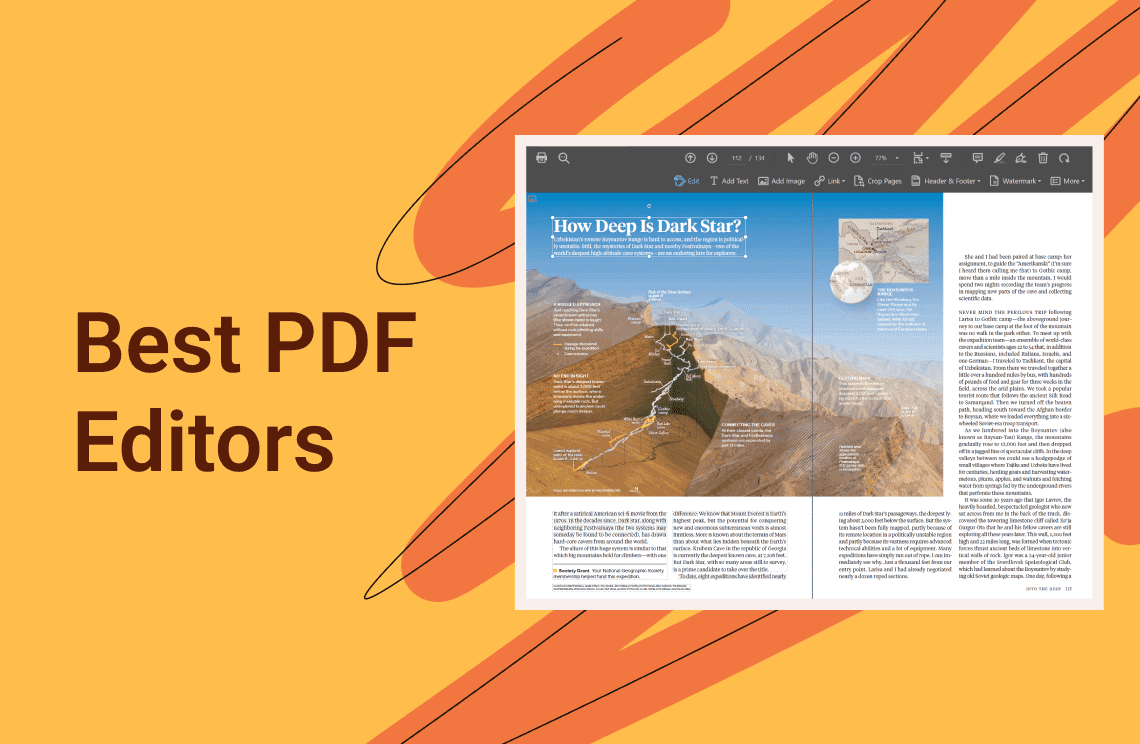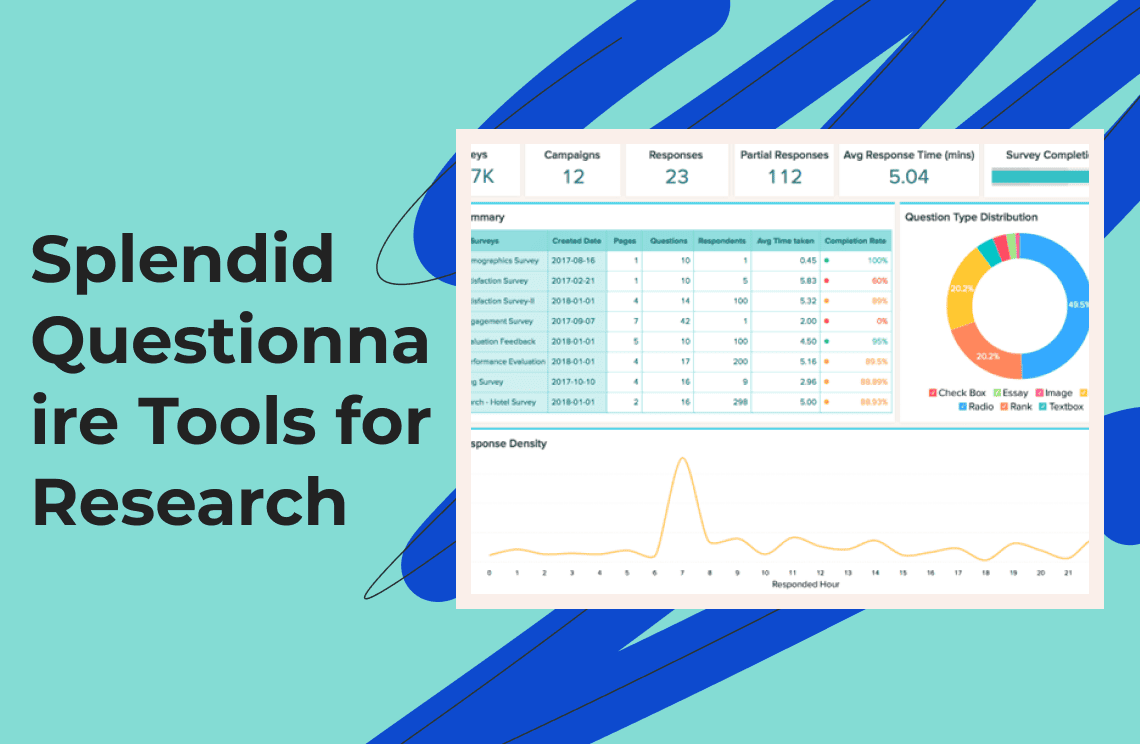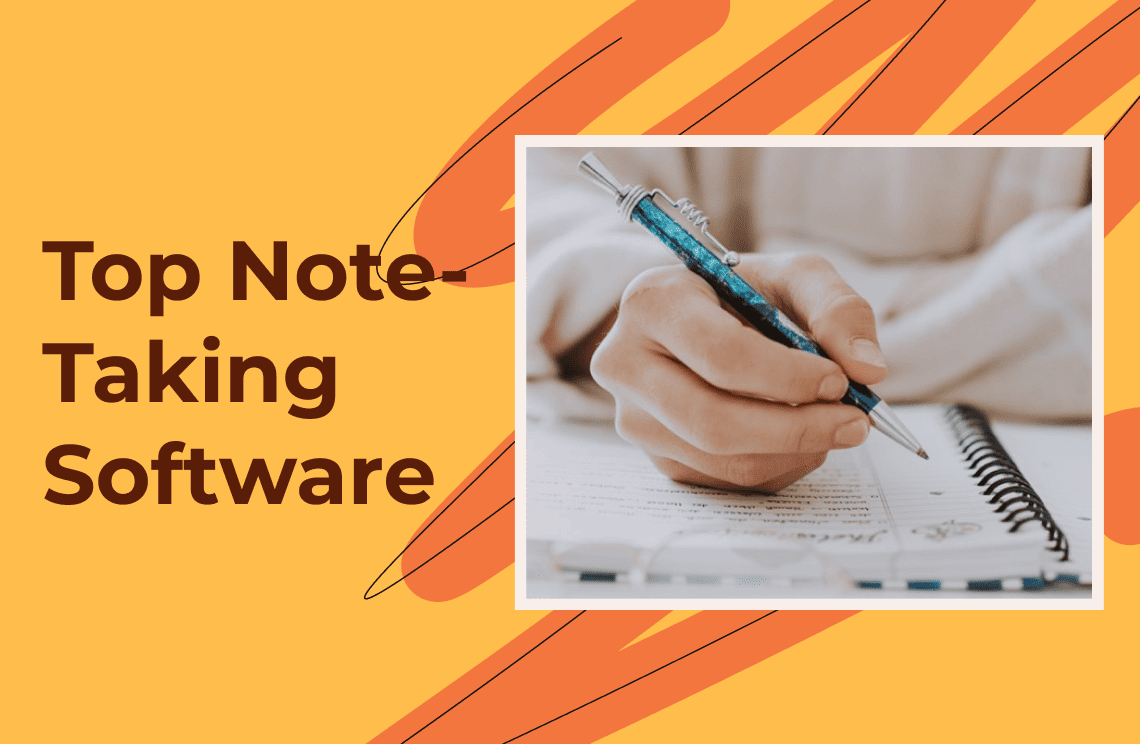Business tools have evolved over the last two decades from analog and first-generation tools to the business intelligence tools we have today. If you are planning to implement one or more intelligence software in your business you want to do it right. There are so many tools available to business administrators to improve decision making but they all serve different purposes and command different levels of success.
The best business intelligence (BI) tools are designed to help users understand trends and insights from a given set of data, enabling them to make informed and strategic decisions. By effectively exposing and tracking patterns within the data, these tools serve as essential instruments for long-term business success. They empower organizations to analyze performance and identify opportunities, ultimately driving growth and innovation.
Today, many small and large scale businesses utilize them and you can do the same. With the rise of the best BI tools, industry experts estimate that their predicted global value will exceed $61 billion by 2026.
Why You Should Use The Best BI Tools?
Utilizing the best BI tools for success is a no brainer in today's ever competitive business climate. In the past, you may have been put off the idea of using one because of its technical requirements but not anymore; these days, there are business tools that don't require such technical insights to use and interpret.
If you want to drive growth in your business consistently into the foreseeable future, you have to compete and paid free BI tools will help such an endeavor. In this article, we review six of the best business intelligence tools for modern businesses. However, note that these tools vary in terms of mode of use, robustness, technical support, and pricing.
Considerations When Choosing The Best BI Tools
Due to the large number of top BI tools in the market, we had to consider a few features when making our pick. Doing a BI comparison is never easy but with a strategic list of important features at our disposal, we were able to make the right picks from among the endless list of BI tools. Here are the things we considered.
1. Ease Of Use:
One of the major issues many business managers had with intelligence tools of old was their complex themes and mode of use Not everyone is tech savvy or has the brain for coding but the good news is that modern tools are getting simplified by the day. However, we picked BI tools that are easy to use even by non-tech people.
2. Automation:
Automation allows users to do more with less effort so we looked for top BI tools with automation features. The tools in our list provide users with automated insights to some degree ranging from stats generation to language. All you need to activate it is just a click of a button.
3. AI:
Artificial intelligence just makes life easier for decision makers. Having a robot at your beck and call can increase efficiency and reduce decision making timelines. We went for tools with integrated AI functions.
4. Data Management:
Our BI picks allow users to manage trillions of data points without malfunctioning or slowing down. Data modeling, visualization options, connectivity, and more are provided by these tools for effective data management.
5. Integration:
We picked business software that you can easily integrate into current business structures and tools for better workflow. You don't have to rip out the ecosystem you have built all this time simply because you wish to implement new software.
With the above out of the way, let us now review the best business intelligence tools for your business. Read through our list and select the one that works for your line of business or satisfies your current needs.
Best Business Intelligence Tools For 2024
Keep in mind that these business intelligence tools differ in terms of robustness, integration capabilities, technical ease-of-use, and, naturally, pricing.
Qlik
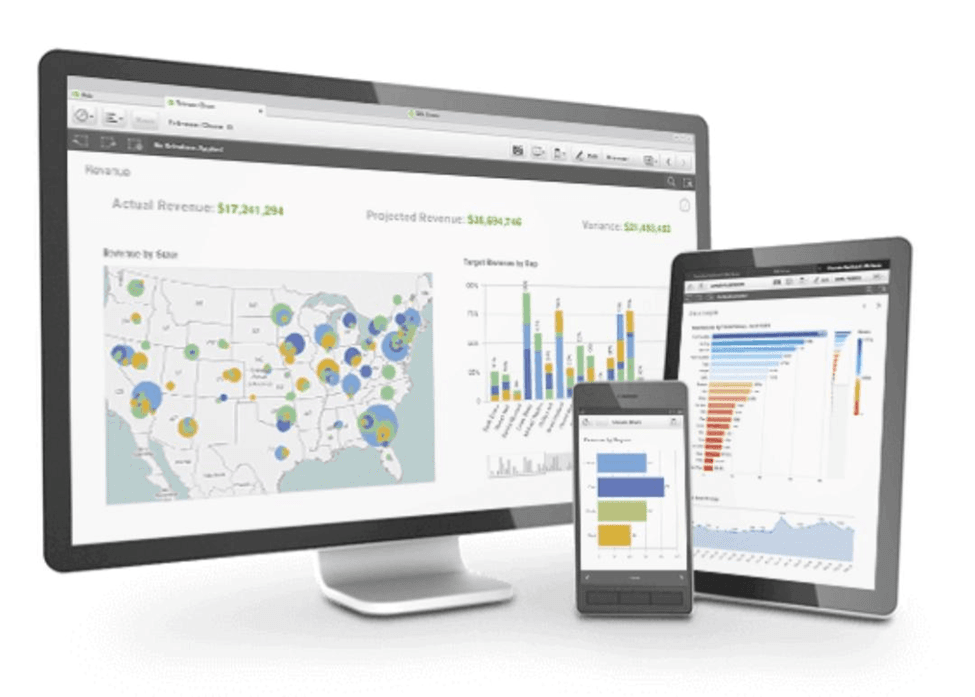
Qlik is a web, Android and iOS-based business tool for data visualization and reporting m. The sample data you feed Qlik will generate accurate information moving forward so you don't waste time managing them manually. This app allows users to work in one or hundreds of data sets at the same time. It does an amazing job visualizing sales numbers and other information with clearly legible and customizable graphs
Users can leverage Qilk's all-inbuilt powerful AI Insight Advisor to ask questions in natural language and the AI will generate summaries, insights, and predictive analytics about all data sources.
Due to its comprehensive functionality, it is quite expensive. Users will have to pay up to $825 monthly to access the Standard based cloud service. It is open to up to 29 users per subscription and Ideal for a tram with a small budget. There is also a client based version but you will have to request for it.
Pros
- AI advisor
- Extensive data reporting
- Advanced mobile app
Cons
- A little complicated
- Expensive
Best Case Use:
- This software is the best tool with all in one functionality
Zoho Analytics
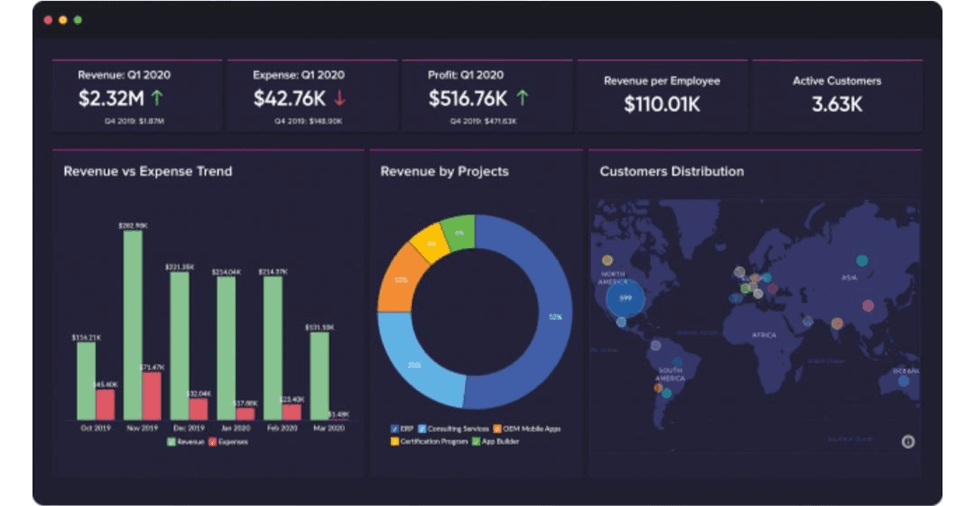
Zoho is another too BI tool for data management and analysis. It has a personal plan for solo digital entrepreneurs looking to punch above their own weight in the ever competitive online landscape. The personal platform allows you to download the system from your server for free and access some of the powerful tools that many other BI tools will charge for. There are conversational AI, predictive analytics, unlimited reports, and more.
Zoho is great for novices because of the simple controls which best explains why it is hugely popular among greenhorns. It has simple work through videos to explain the mode of use and the interface is not clogged but easy to analyze and understand.
Zoho Assistant AI is called Zia and it is quite impressive because it generates formulas for manipulating data exactly how you want but also predictive analytics in natural language. It is one of the best free BI tools out there but for more features, you need to purchase the enterprise plan.
Pros
- Free plan with limited functions
- Easy to use controls
- Third party integration
- Equipped AI tools
Cons
- Outdated interface
Best Case Used:
- The best BI tool for solopreneurs
SAP Business Objects
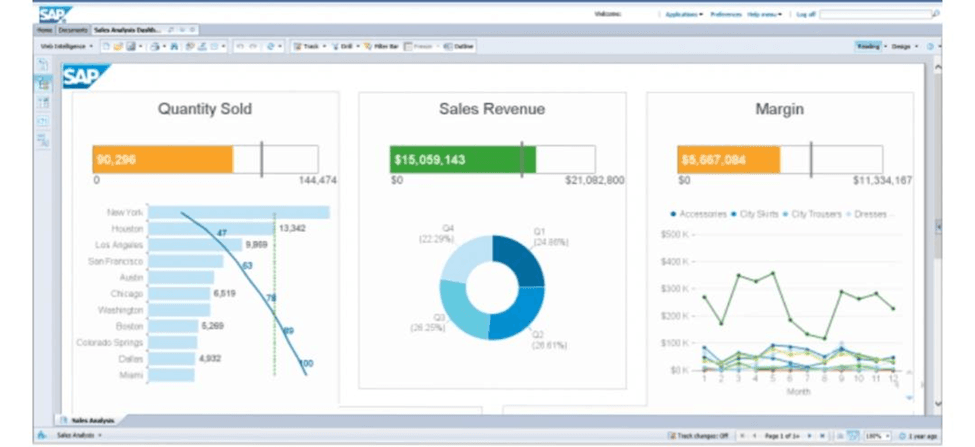
SAP is a business software for comprehensive reporting, interactive data visualization, and analysis. This business intelligence platform focuses on categories of business such as CRM, CX, ERP, Supply Chain and more. It is a very helpful platform for managing customer self service. The advanced dashboard offers users unique dashboard la for the sites and applications.
The SAP software is reliable for roles in IT, management and end uses. It also offers tons of functionality in a single platform.
SAP is not as difficult to use because the command keys are self explanatory. There are also user videos for new users to understand how they work. This powerful tool offers next generation features for consistency and efficiency.
Pros
- Easy to use
- Powerful data generated and interpretation
- Operate multiple data data at once
Cons
- Quite expensive
Best Case Use:
- SAP is ideal for digital marketers looking to gain real-time market insights.
MicroStrategy
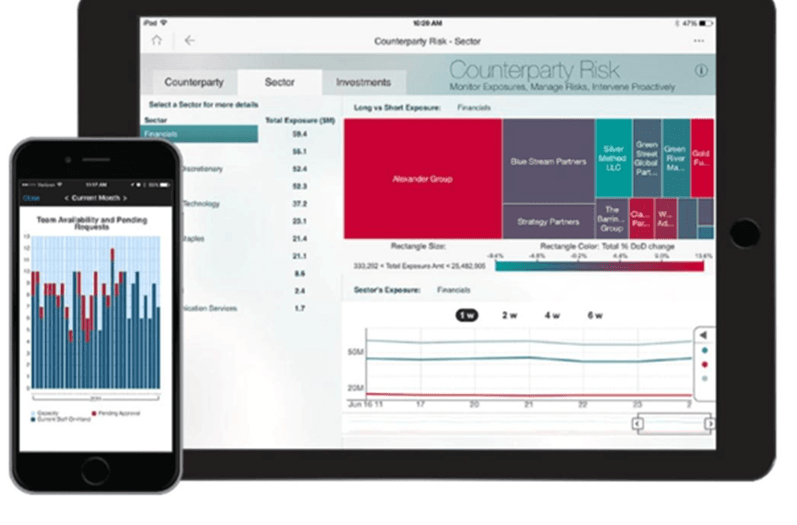
Fourth on our list of the best business intelligence tools is MicroStrategy. The tool utilizes high speed dashboards, cloud solutions, hyperintelligence, and data analytics. With these functions at your disposal, you can recognize new opportunities by identifying trends to improve productivity.
It allows users to connect to multiple data sources from cloud based sources to enterprise or spreadsheets.
You can access MicroStrategy from mobile phones or desktop. Setting it up, however, requires multiple parties with extensive application knowledge. The subscription for MicroStrategy starts from $90 and may increase depending on the functions you activate.
Pros
- Easy to use
- Interpretable data
- Great customer support
- Custom features
Cons
- Not so easy to set up
Best Case Used:
- MicroStrategy is best for eCommerce brands
Tableau
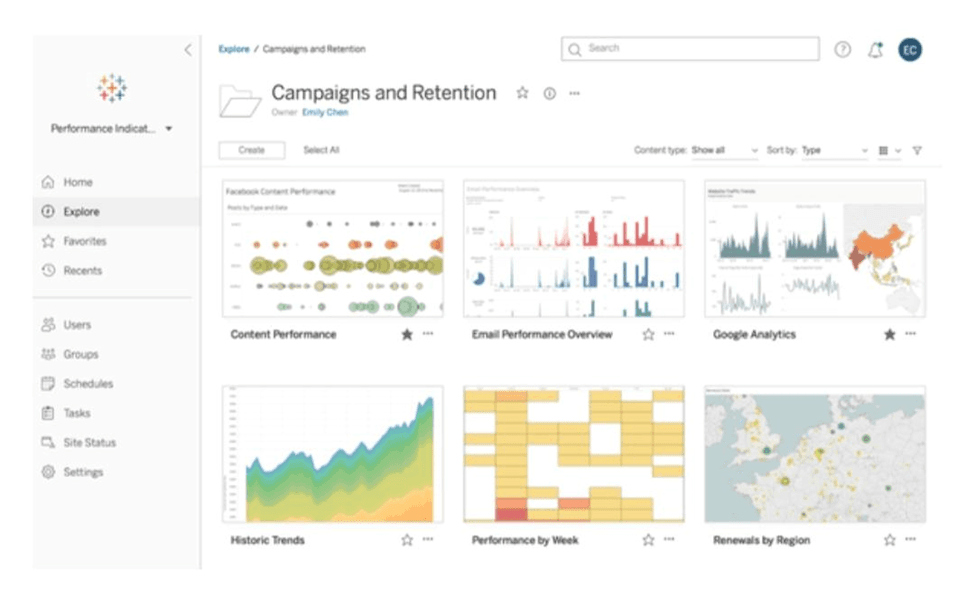
Tableau is an updated BI software that is widely praised for its premium data visualization features. It stands out for its collaboration capacity. Team members can share dashboards, workbooks and more with their colleagues as they work on specific projects and the app also offers different access functions like the Explorer, Viewer, and Creator for particular degrees of access.
Tableau offers stellar features for pre-built workbooks and various tools for data integration, including ServiceNow ITSM, Marketo, and Salesforce. The app is empowering and can be used by even first timers with little or no previous experience. There is also a recommendation tab for AI automation and integration into existing workflows.
This application has a basic pricing model of $15 per month for a Viewer plan.
Pros
- Extensive sharing
- Workbook visualization builder
- Great customer support
Cons
- Fewer AI functions
Best Case Use:
- Best tool for team collaboration
SAS Augmented Analytics
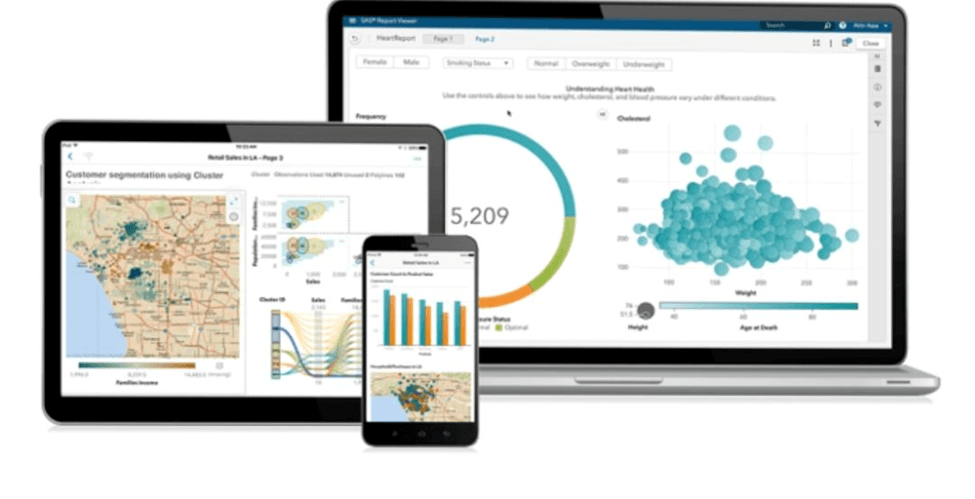
Last but not least is SAS Analytics which is an advanced predictive tool with amazing functions. SAS is a self service tool dating back to the 1970s but the developers have upgraded it during that time. It allows users to use data and metrics to make business decisions about action plans. The API sets allow for customization options, data reporting, analytics and integration, and more.
We recommend this business software to those looking for contextual insights because SAS will break information down to the lowest data point. SAS is easy to use and data management is a strong suit not to overlook. It is available on Android, iOS, and Web.
Pros
- Large library of connectors for robust integration
- Great for building workflow
- Fast loading
Cons
- Cluttered interface
Best Case Use:
- The best business intelligence software for flexible management
Conclusion
The best business intelligence tools don’t necessarily have to be the most expensive or the most complex options available on the market. Instead, the most effective tools are those that are user-friendly and help you make informed decisions that positively impact your business. Depending on your specific needs and objectives, you can choose any of the tools analyzed in this article. Each of these tools can be seamlessly integrated into your current ecosystem, enhancing efficiency and streamlining operations moving forward. The right business intelligence tool can transform data into actionable insights, ultimately driving your business toward success.
FAQs
Q: What does analytics mean?
A: It means data is arranged in an organized manner for interpretation. The purpose of analytics is to communicate patterns and trends. Analysts use data analysis techniques for research and decision making.
Q: What are dashboards for?
A: All business intelligence tools have dashboards for seeing actionable insights. You can see various data sources, web solutions, metrics, and more.
Q: What Is Data Visualization?
A: It is the use of visual tools like graphs, maps and charts to present information. These tools allow the user to understand trends and patterns.

